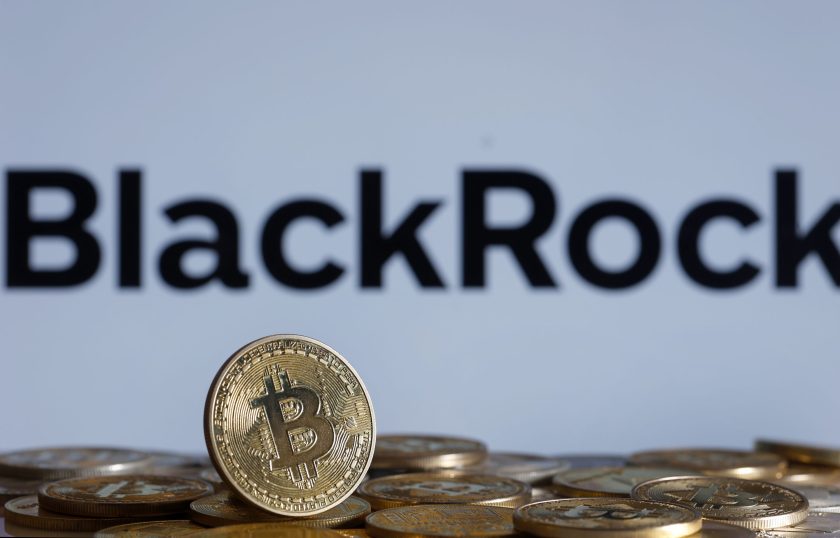
BlackRock’s spot Bitcoin ETF is the leader among the 11 approved by the Securities and Exchange Commission in January. Chesnot/Getty Images
The spot Bitcoin ETF run by the world’s largest asset manager, BlackRock, showed its early dominance in becoming the first among a newly approved group of crypto-linked financial products to reach $1 billion in assets under management.
The firm’s ETF, iShares Bitcoin Trust (IBIT), beat out the other 10 exchange-traded products approved by the SEC last week, including those from fellow TradFi stalwarts Fidelity and Franklin Templeton.
Reaching $1 billion in assets under management in such a short time would be noteworthy for any ETF, much less one that has faced an uphill battle for approval from the SEC, said Steven Lubka, managing director and head of private clients at Swan Bitcoin.
“If you look at the history of all ETFs, period, BlackRock is in rarefied air,” Lubka told Fortune.
BlackRock’s head of digital assets, Robert Mitchnick, said in a statement that the major inflows to IBIT in just one week reflect strong investor demand.
“This is just the beginning. We have a long-term commitment focused on providing investors access to an iShares quality ETF,” Mitchnick said in a statement to Fortune.
Lubka added that the strength of BlackRock’s Bitcoin ETF shows that Bitcoin will benefit overall as reliable TradFi firms replace failures such as FTX and Celsius as investors’ entry point to the crypto market. Although in statements the SEC tried to distance itself, the agency’s approval of the ETFs after just over a decade of rejections also helped, Lubka said.
Although Bitcoin surged in the aftermath of the approvals last week, its price has since fallen to about $42,400—down from $46,700 a week ago. Lubka said the stall in Bitcoin’s price is likely due to some outflows from Grayscale’s spot Bitcoin ETF, which has the highest fee of all the new products at 1.5%. It could also be attributed to some investors managing risk by waiting to see what happens now that the market has been changed by the new TradFi entrants, he added.
“I think, short term, traders realized there’s no catalyst in the next one to two weeks that’s going to drive the price 20% higher—this is going to be a little more on the medium term,” Lubka said.
This news is republished from another source. You can check the original article here

